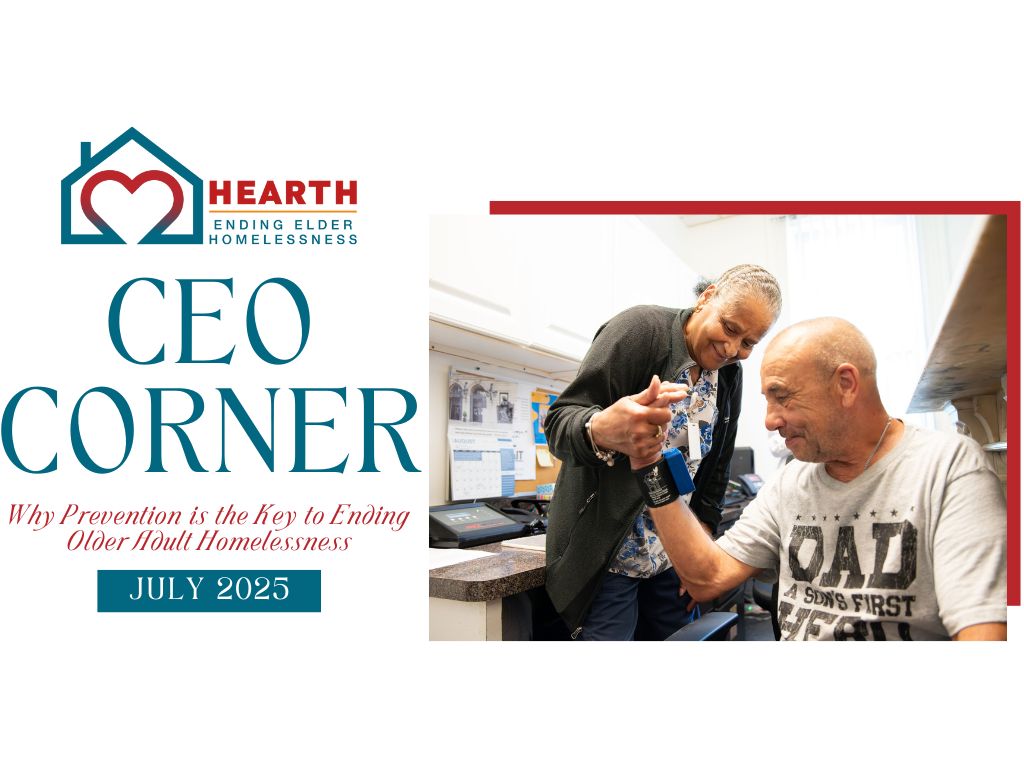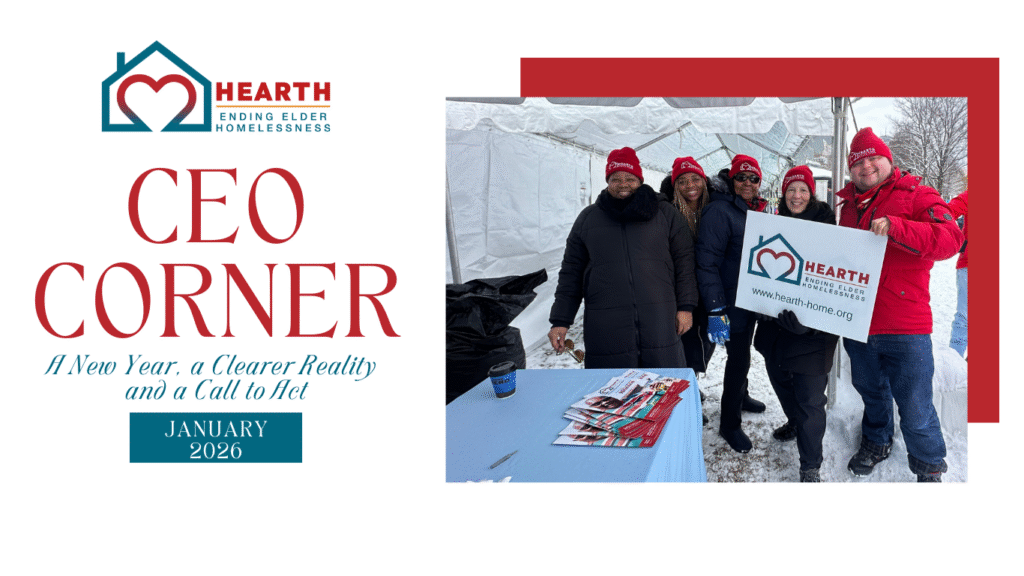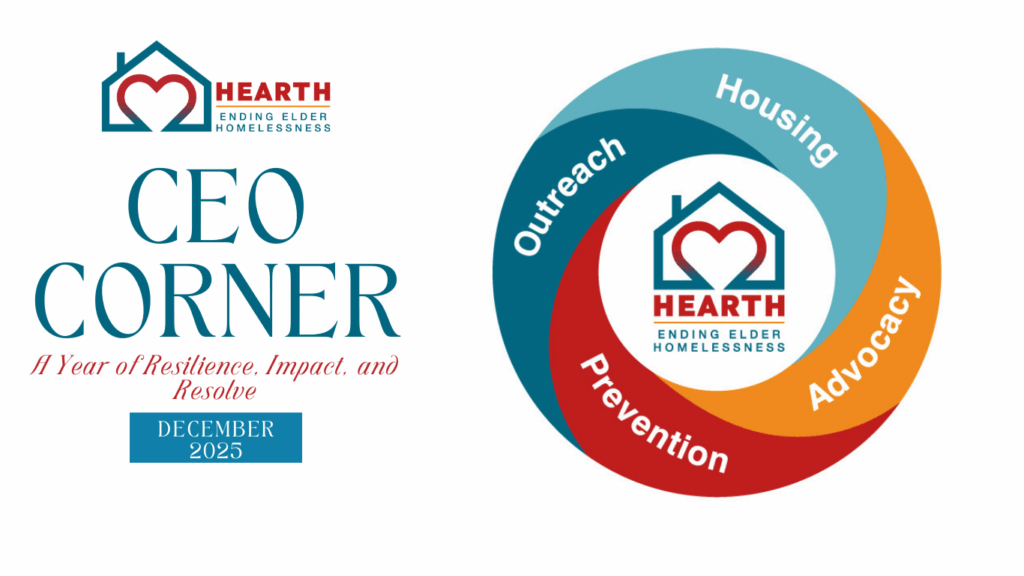CEO Corner: Why Prevention is the Key to Ending Older Adult Homelessness

When we think of homelessness, most people picture individuals in their 20s or 30s. But today, the fastest-growing segment of the homeless population is older adults. According to the 2024 Annual Homelessness Assessment Report (AHAR), more than 100,000 people aged 55 or older were experiencing homelessness on a single night in January 2024 and nearly half of them were unsheltered. If trends continue, that number is projected to reach 290,000 by 2030.
Here in Massachusetts, the numbers are equally alarming. On one night in 2024:
- 2,284 people aged 55+ were homeless, a 17% increase from 2023
- 1,735 people aged 45–54 were homeless, up 34% from the previous year
In Boston alone, the number of single adults experiencing homelessness rose nearly 13%, from 1,803 in 2023 to 2,036 in 2024.
These statistics represent real people who never imagined they would face homelessness later in life. It is not a matter of choice; it is a crisis of circumstance. Older adults are being pushed into homelessness due to variety of circumstances:
- Fixed incomes that can’t keep up with skyrocketing housing costs
- Rising property taxes forcing longtime homeowners to sell
- Critical home repairs they can’t afford that compromise quality of life and safety
- Healthcare costs that drain modest savings
- Sudden income loss after the death of a spouse
- A severe lack of affordable housing with appropriate accessibility features
At Hearth, we see the human impact every day. Nearly all of our outreach clients (99.1%) are over 50, and 98.8% of residents in our housing programs are over 50. In 2024, 64.9% of people entering Hearth housing had already experienced homelessness, while another 22.6% were at risk. The health challenges are staggering for this population:
- 88% of our residents have at least one physical condition
- 85.6% report at least one disabling condition
- 74.3% live with mental health challenges
- 68.3% have substance use conditions
These realities make prevention both urgent and cost-effective. Once an older adult becomes homeless, the consequences are profound. They are negatively impacted physically, emotionally, and financially. Homeless adults in their 50s experience geriatric conditions such as vision impairment and mobility issues at rates similar to housed adults 20 years older. Providing stable housing and supportive services before someone loses their home saves not only lives but also the significant costs associated with emergency shelters, hospitalizations, and long-term care.
Hearth is working to change this narrative. Our comprehensive housing model combines safe, affordable homes with wraparound services like health care coordination, mental health support, and social engagement. We currently operate six supportive housing sites with 185 units and a 43-unit affordable assisted living facility in Roxbury, but the need far outpaces our resources. In 2025, we aim to increase the number of older adults housed, expand our prevention services, and strengthen healthcare connections for our most vulnerable seniors.
But we can’t do it alone. Your support makes this possible. Here’s how you can help today:
- Donate to fund housing and prevention initiatives
- Volunteer to engage with our residents and programs
- Join us at the Hearth Gala this fall to hear from experts like Harvard University’s Dr. Howard Koh, Inaugural Chair of Health and Homelessness Initiative and learn how we can solve this crisis together
Older adult homelessness is one of the most pressing social issues of our time; but it is solvable. With your partnership, we can ensure that no one grows old without a place to call home.
Thank you for standing with us.
Warm regards,
Rhonda Pieroni
President and CEO

CEO Corner: A New Year, a Clearer Reality and a Call to Act

CEO Corner: A Year of Resilience, Impact, and Resolve

